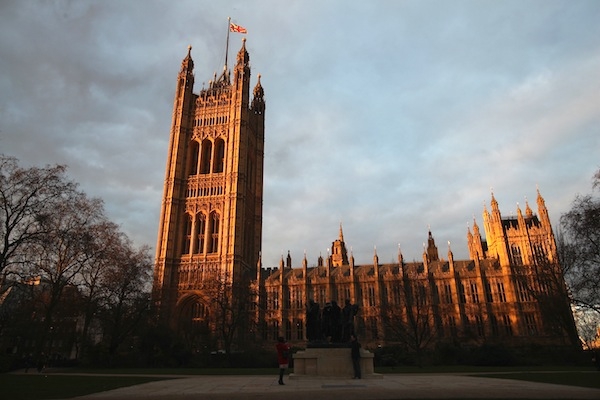Sleaze scandals will crop up in politics from time to time, but what makes the latest round of allegations particularly damaging is that the government has had two opportunities to at least address faltering public mistrust in politicians, and hasn’t. Those pushing for the power to recall MPs and a register of lobbyists have had rocket boosters fitted to their campaigns in the past few days, and inevitably those who appear to have either blocked or at least dragged their feet on these two policies are now facing criticism for doing so.
This morning, Francis Maude insisted that the register of lobbyists wouldn’t have stopped the alleged behaviour reported over the weekend. He said:
‘The statutory register of lobbyists would have made no difference in this case at all because what’s alleged to have happened would have been against the rules, parliamentary rules, in any event. The statutory register would have made no difference at all except, actually, ironically to make it easier for those people who were the subject of a fictitious company to know that it was a fictitious company.’
Maude is right that even the best system in the world won’t stop politicians who want to stick their snouts in a trough jolly well searching out that trough and well and truly immersing their snouts: humans are flawed and temptation is always around the corner. But the problem politically is that the government appears to have dragged its feet over making the current system better.
Nick Clegg has seized the new opportunity to move discussions beyond the deadlock that the two parties had reached for the Queen’s Speech. Just over a fortnight ago, he told journalists that ‘it’s not something that we could get agreement on across the Coalition at the moment. I very much hope at some point we will.’ Today he wrote in the Telegraph that ‘the Prime Minister and I are both determined that the register should go ahead as part of a broad package of measures to clean up the way politics is done’. And the Prime Minister’s official spokesman today said work was ‘ongoing’ and ‘I would expect the government to have more to say in the near future’. He wouldn’t say what ‘near future’ meant, and plans for the register have been ‘forthcoming’ for a while, but the latest scandal has certainly moved things on.
One plan that will struggle to move beyond a deadlock in the next few months is the issue of MPs’ pay. IPSA is expected to recommend a pay rise for MPs this month. Funnily enough, the party leaders are a little more concerned about how this will be received by the electorate than backbenchers are: they feel a raise has been long overdue in helping parliament compete with the private sector for gifted members. The latest lobbying scandal will make it even more difficult for the parties to accept this recommendation. But the issue will be particularly toxic for the Conservative party. If Cameron rejects IPSA’s recommendations, he risks provoking uproar among his own MPs, who will see it as just one more sign that he doesn’t care about them.







Comments